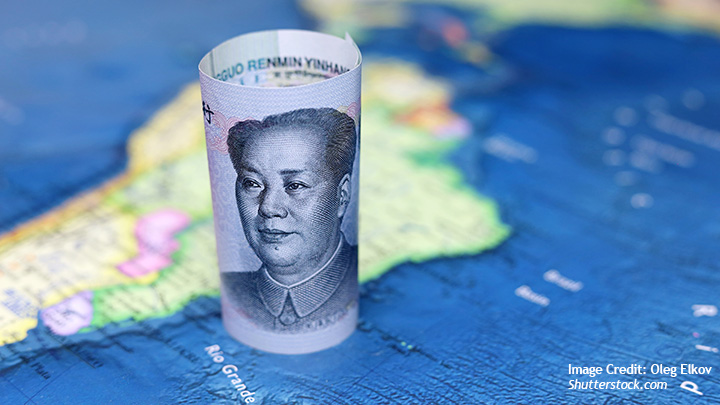From Alipay to the Digital Yuan: China’s Fintech Revolution

Monique Taylor
Executive Summary
- Fintech in China manifests itself in ways that are qualitatively different from its development in Western countries. The unique blend of a mobile-first consumer base, underdeveloped traditional banking services, regulatory freedom, vast economies of scale, the influence of Chinese tech giants, extensive government support, and the enthusiastic embrace of fintech by Chinese consumers, has allowed the fintech industry to grow rapidly and permeate society more extensively in China compared to the West.
- China’s fintech growth, transformed by the launch of Alibaba’s Alipay in 2004, benefitted from supportive government policies and pioneering companies. Tech giants like Alibaba integrated fintech services deeply into expansive digital ecosystems, ensuring widespread adoption. By 2018, China led in global fintech investment and adoption rates surpassing global averages.
- WeChat, boasting over 1.2 billion monthly users, is China’s leading super-app, primarily for content, while Alipay, with its hundreds of millions of users, reigns in mobile payments. Together, they command 95 percent of China’s mobile payment market. The pivotal turn in mobile payments came with WeChat’s ‘redpackets’ – a digital take on the traditional Chinese hongbao. This feature exploded in popularity during the 2015 CCTV Spring Festival Gala, resulting in 200 million users linking bank accounts to WeChat. The fusion of these digital red packets with social media and e-commerce gamified spending, driving business-consumer engagement and attracting new customers.
- While Ant Group’s Sesame Credit and Tencent’s Tencent Credit have developed their own internal social credit systems, they do not directly contribute user data to China’s national Social Credit System (SCS). They use vast amounts of data on user behaviour and spending to gauge financial trustworthiness and creditworthiness. These systems, intertwined with fintech innovations, underscore the significant role big tech plays in shaping societal norms and behaviours in China.
- China has experienced dramatic improvements in financial inclusion, largely driven by fintech advancements and supportive government policies. Despite the challenge of a significant unbanked population a decade ago, particularly in rural areas, fintech initiatives by tech giants like Alibaba and Tencent have transformed access to financial services. Fintech’s utilization of AI to evaluate creditworthiness has been instrumental in addressing challenges in rural China, where traditional credit data is scarce. Despite these advancements, a stark reminder of the risks of unchecked fintech growth was the rapid rise and collapse of China’s P2P lending market.
- China’s central bank, the People’s Bank of China (PBOC) initiated discussions about a central bank digital currency (CBDC), the digital yuan or e-CNY, as early as 2014. By 2020 pilot programs began in several cities, placing China at the forefront of CBDC development. However, its adoption has been slow; only 20 percent of China’s populace have used it, as most prefer existing mobile payment apps like Alipay. If fully adopted, the digital yuan would offer the PBOC the capacity to monitor and trace all transactions, aiding in combatting financial crimes but also granting the Chinese Communist Party (CCP) unprecedented insight and control over the financial lives of individuals.
- From 2016, Beijing transitioned its approach to the fintech sector from promotion to regulation, triggered both by the collapse of the P2P lending market and wider concerns over big tech’s challenge to state financial control. For instance, the PBOC introduced stricter regulation on microlending platforms to ensure financial stability. A regulatory crackdown began in 2020 with the halt of Ant Group’s US$37 billion IPO, leading to significant restructuring in fintech operations to align more closely with state guidelines. By 2023, regulatory focus shifted to routine supervision, after the imposition of substantial fines on major players like Ant Group and Tencent.
Related Publications
-
ISDP Annual Report 2023
ISDP’s Annual Report for the year 2023. We look back on 2023, a year in which tensions and conflicts captured the strategic space in ISDP’s focus areas, making headlines around […]
-
Intersecting Horizons: The Nexus of Maritime Security and Global Health
The maritime industry is often regarded as one of the primary engines of the global economy as it is the backbone of global trade, accounting for around 90 percent of […]
-
EU-Thailand FTA Negotiations: IUU Fishing and Human Rights Remain Obstacles
Thailand’s fishing industry, which at its height saw as many as 200,000 migrant workers from neighboring Laos, Myanmar, and Cambodia caught in a brutal system of abuse, withered global criticism […]
-
Indo-Pacific Security in 2030-35: Links in the Chain
In recent years, events like the COVID-19 pandemic and the Russia-Ukraine war have brought global supply chains squarely under the spotlight. The economic impact of these disruptive events exposed the […]
-
South Korea’s Indo-Pacific Strategy, Atmanirbhar Bharat, and the IPEF: Convergence and Commonality
For some time now, the existing multilateral networks such as those of the United Nations (UN) system have been largely ineffective in providing good global governance and helping create resilience, […]




